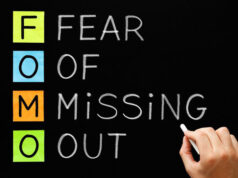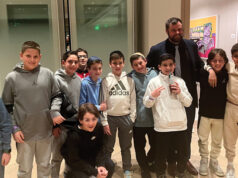
Before agreeing to become president of the American Friends of the Alliance Israélite Universelle, Isabelle Friedman went to Israel to meet administrators, principals, teachers and students of Alliance schools “to determine how she could be most useful.”
It was not her first time in Israel. As a student, in 1967, she spent nine months on a kibbutz. Now, she continues to participate in Israel’s development, this time in the field of Jewish education and culture.
“From its inception in 1947,” she says, “the American Friends contributed to the Alliance’s efforts in educating more than a million Jewish children on four continents, promoting Jewish culture and furthering human rights.”

This endeavor began almost 150 years ago, when 17 young French Jewish professionals decided to create a society of Jews to fight against prejudice and ignorance and to foster culture and equal rights for all. Its widespread influence in the culture and education of thousands of children encompassed the countries around the Mediterranean basin. Today, the Alliance Israélite Universelle is one of the principal organizations of its kind in the world, with a network of schools in France, Israel, Morocco and other countries, and the largest Jewish library in Europe.
In Israel, the Alliance-Kol Israel Haverim (KIAH) dates back to the establishment of the Land of Israel’s first agricultural school in 1870. It continued to build a network of elementary schools as well as five outstanding high schools in Eretz Yisrael’s major cities and, in 1937, a school for the deaf in Jerusalem.
After Israel’s independence, all these schools became part of the new country’s educational system. In 1974, the Alliance sponsored the creation of the Kerem Institute for Teacher Training in Jerusalem, the only teachers’ college that focuses on humanistic Jewish education in the Israeli secondary school system.
In the last 10 years the organization has become increasingly involved in social welfare and cultural identity. A priority of the Sha’ar Schools Network of KIAH is to raise scholastic achievement in the underprivileged sectors of the Tel-Aviv metropolitan area. This ambitious program includes funds to test for learning difficulties, coaching principals and teaching staff, and fostering partnerships between the schools and their respective local institutions, both non-profit and commercial.
At present, Sha’ar is involved and active in 13 schools with 6,600 school children between the ages of six and 18. Its goal is to create at these schools, over a period of six to 10 years, an educational path that will lead students out of poverty and distress by raising their prospects for higher education.
Friedman’s immediate goal is to raise $250,000 for one school. “During my tour of the most crowded and neglected neighborhoods of the country, the poverty and educational needs of the schools were beyond my imagination,” Friedman explains. “One of the women I met was Niva Kapeliuk, Principal of the Remez High School, the only non-Orthodox school in the ultra-Orthodox city of Bnei Brak. Remez’s students come from families of immigrants from the former Soviet Union who struggle to adapt to life in Israel, to have shelter and food. Niva talked to me about children licking the plate at the end of a meal, or asking for extra food for their mothers. Education doesn’t make the top of their list of struggles.” American Friends of the AIU have agreed to “adopt” Remez School to help Niva and her fellow teachers make a difference in the lives of these new Israeli citizens.
Friedman describes the needs: “Israeli schools depend on local municipal funding for their buildings, equipment and basic supplies, especially for science laboratories, libraries and gyms. But sports, art and personal enrichment through exposure to culture and nature must be private expenditures, ‘luxuries’ that are beyond the reach of Soviet immigrants. Further, the Ministry of Education funds the salaries of school principals and teachers on a per-child basis, so smaller schools like Remez also suffer from under-funding. The children in this school often fall behind.”
Under Friedman’s leadership, the American Friends of the AIU are determined to help raise the scholastic achievement and the social skills of the students at Remez; organize an extracurricular study program that expands cultural and academic horizons; provide scholarships, school supplies and hot lunches; and finally, develop social values programs by highlighting Jewish traditions.
“To fulfill Niva’s mission,” Friedman believes, “we must offer these children an alternative way of life, and help them realize that they can hope and plan for a better future.”



